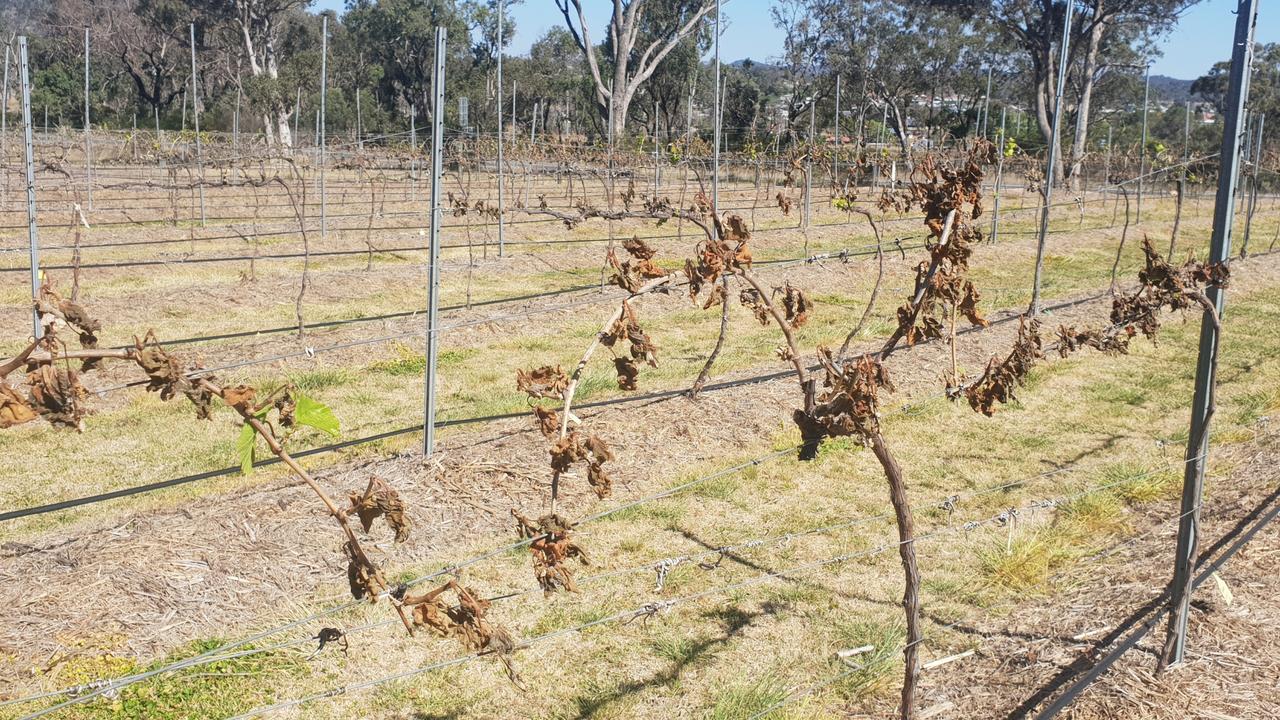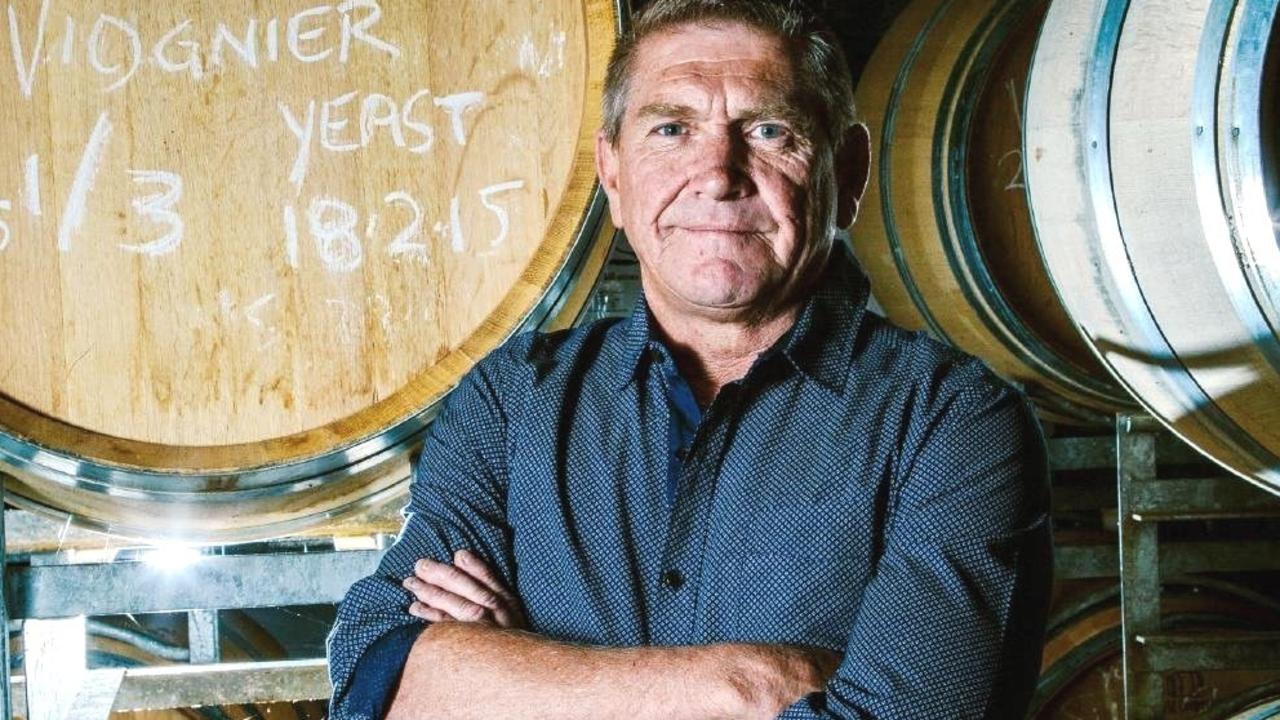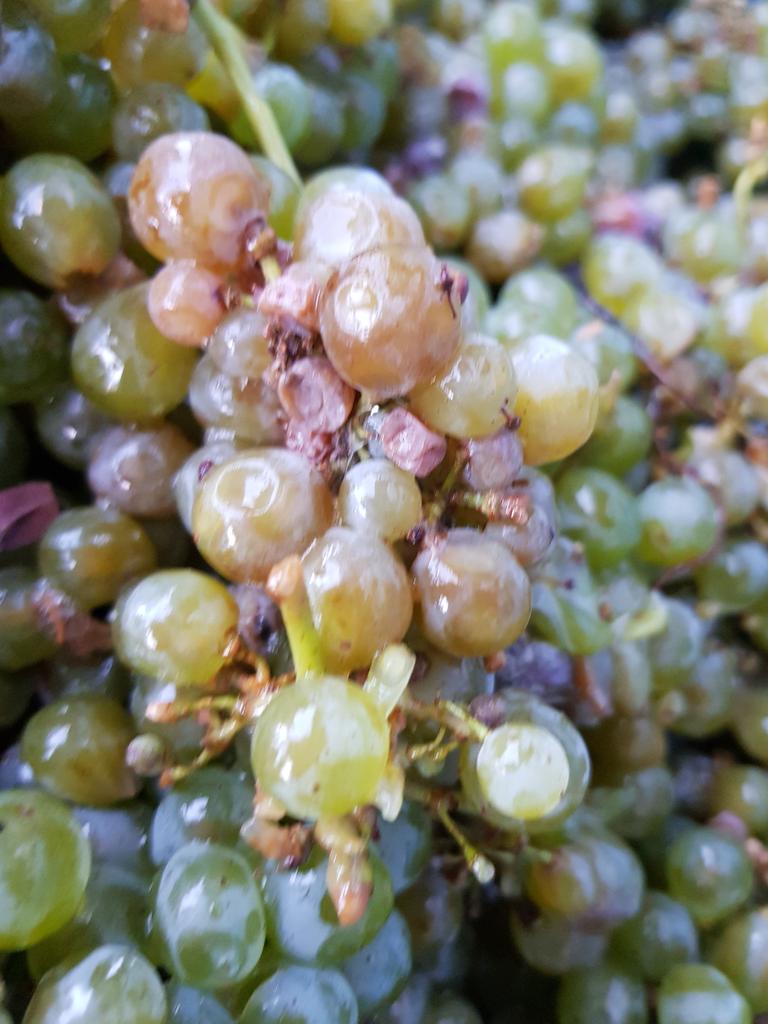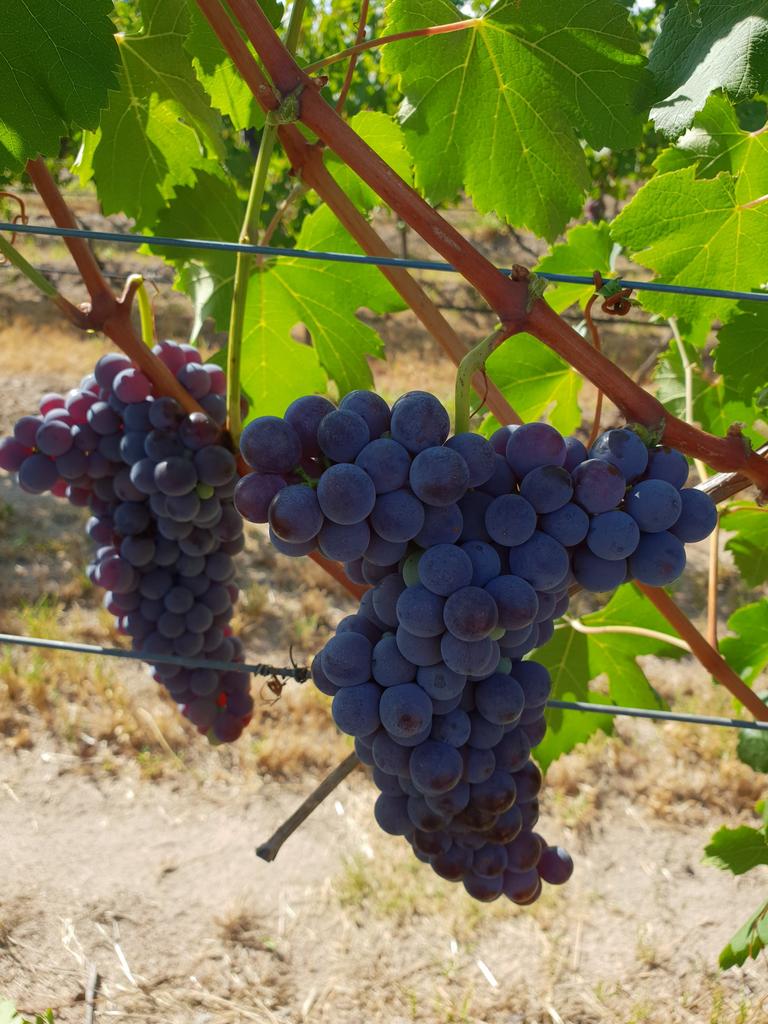Mike Hayes: Wine expert says climate change puts greater pressure on Granite Belt growers
A Stanthorpe wine expert says extreme weather events are having a detrimental impact on the industry and forcing farmers to adapt.

Stanthorpe
Don't miss out on the headlines from Stanthorpe. Followed categories will be added to My News.
Extreme weather and a changing climate has had significant impacts on the Granite Belt wine industry, leading to a decrease in grape harvest viability that has forced producers to adapt grape varieties.
Queensland College of Wine Tourism adjunct professor Mike Hayes said weather events like floods, bushfires, hail, thunderstorms and drought were having significant impacts on Granite Belt vineyards.
“Due to climate change we are seeing the annual wine harvest, which is normally over a two-to-three month period, now become much shorter and last for about four to five weeks,” he said.

Professor Hayes said the weather in the Granite Belt has become sporadic and unpredictable making it more difficult for farmers to react and plan for harvests and growing seasons.
“On the Granite Belt there has been 30 per cent less rainfall in the last decade and what is most concerning is the region isn’t getting the diurnal shift (extreme changes in high and low temperatures) during the night,” he said.
“These adverse weather like higher temperatures overnight and rain cause mould and mildew to attack the vines.”

One solution that Professor Hayes has helped pioneer in the region is wineries using new grape varieties such as Fiano, Montepulciano, Saperavi and Malvasia from European countries like Georgia and Italy, rather than France.
“European grape varieties have much more open (grape) bunches and are not as compact as French varieties like Pinot Gris, making them more suited to climate change and the Granite Belt,” he said.
“Fiano for example is very loose, which means there is a huge reduction in fungal attack or mould that can occur in the bunch, making it more viable to the current climate.”

Through his research project Vineyard of the Future at the QCWT, Professor Hayes wants to help save the Australian wine industry from the effects of climate change.
“We want to enhance peoples’ and farmers’ thoughts of adopting new wine styles that are resilient and can adapt to extreme weather events,” he said.
The Vineyard of the Future project involves observing how 80 different grape varieties handle and accept adverse weather conditions like hail, frost and heat.
“This research allows us to see which grapevine varieties are resistant to certain diseases and how the quality of the product evolves over time,” he said.
Professor Hayes said the decision to use European varieties has so far been positive among farmers and has caused plenty of intrigue from consumers visiting Granite Belt wine cellar doors about new drops.
Despite changes to the types of wine varieties being made by Granite Belt vineyards being well received, Professor Hayes admits there was still work to be done in creating weather resistant grape vines that are resilient to the effects of climate change.
“The government needs to assist with retraining farmers on their land practices and farming activities that will benefit the longevity of their produce,” he said.
Originally published as Mike Hayes: Wine expert says climate change puts greater pressure on Granite Belt growers






